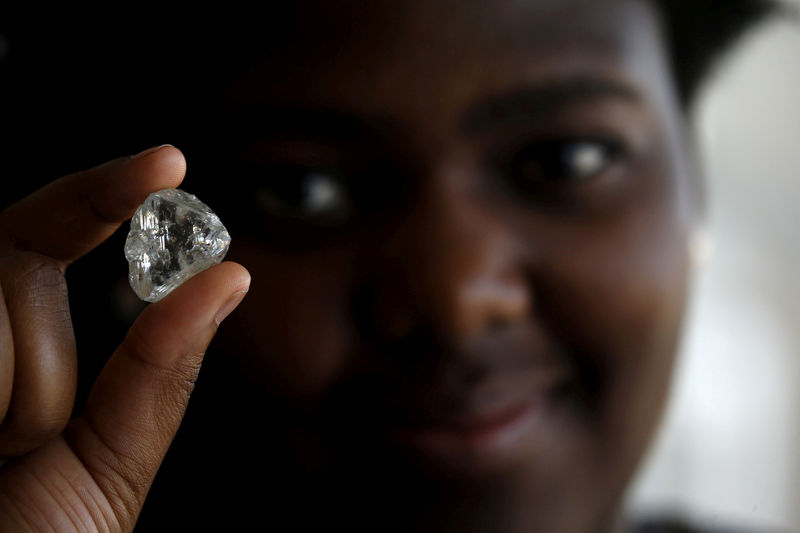CAPE TOWN (Reuters) - Anglo American 's (L:AAL) diamond unit De Beers will keep its diamond exploration budget steady at $35 million in 2017, the company said, although it has turned to new technology to try to improve the rate of discoveries.
Many mining companies cut exploration spending because of a slump in commodity prices in 2015, as well as a widening gap between expenditure and the value of resources found as the best quality ores are depleted.
"Our exploration spend this year is likely to be in line with last year's, around $35 million," De Beers said in an email.
De Beers, however, is employing a high-tech detection method that measures the tiny magnetic field shifts that indicate the presence of a kimberlite pipe, where diamonds are found, well below the surface of the earth.
The industry as a whole invested around $7 billion on exploration between 2000 and 2013, De Beers figures show.
The results of this spending have been meagre. De Beers says only one diamond deposit of significant size has been discovered – Bunder in India, which Rio Tinto (AX:RIO) (L:RIO) found in 2004.
Last year De Beers also brought on a new mine in Canada, saying it was the world's largest new diamond mine but would not result in a supply surge because it was only helping to replace diamonds that have been sold.
Some analysts talk about peak diamonds and De Beers has a policy of balancing production and demand to maintain its position as the biggest producer by value. Russia's Alrosa (MM:ALRS) is the biggest diamond producer by volume.
Anglo American has placed diamonds, along with copper and platinum, at the core of a business it wants to focus on increased margins rather than bulk.
Diamond sales recovered in 2016 as the entire industry bounced back from a slump in 2015.

Sales of smaller grades, however, were hit late last year by India's decision to phase out higher denomination bank notes, constraining consumer spending in a largely cash economy.